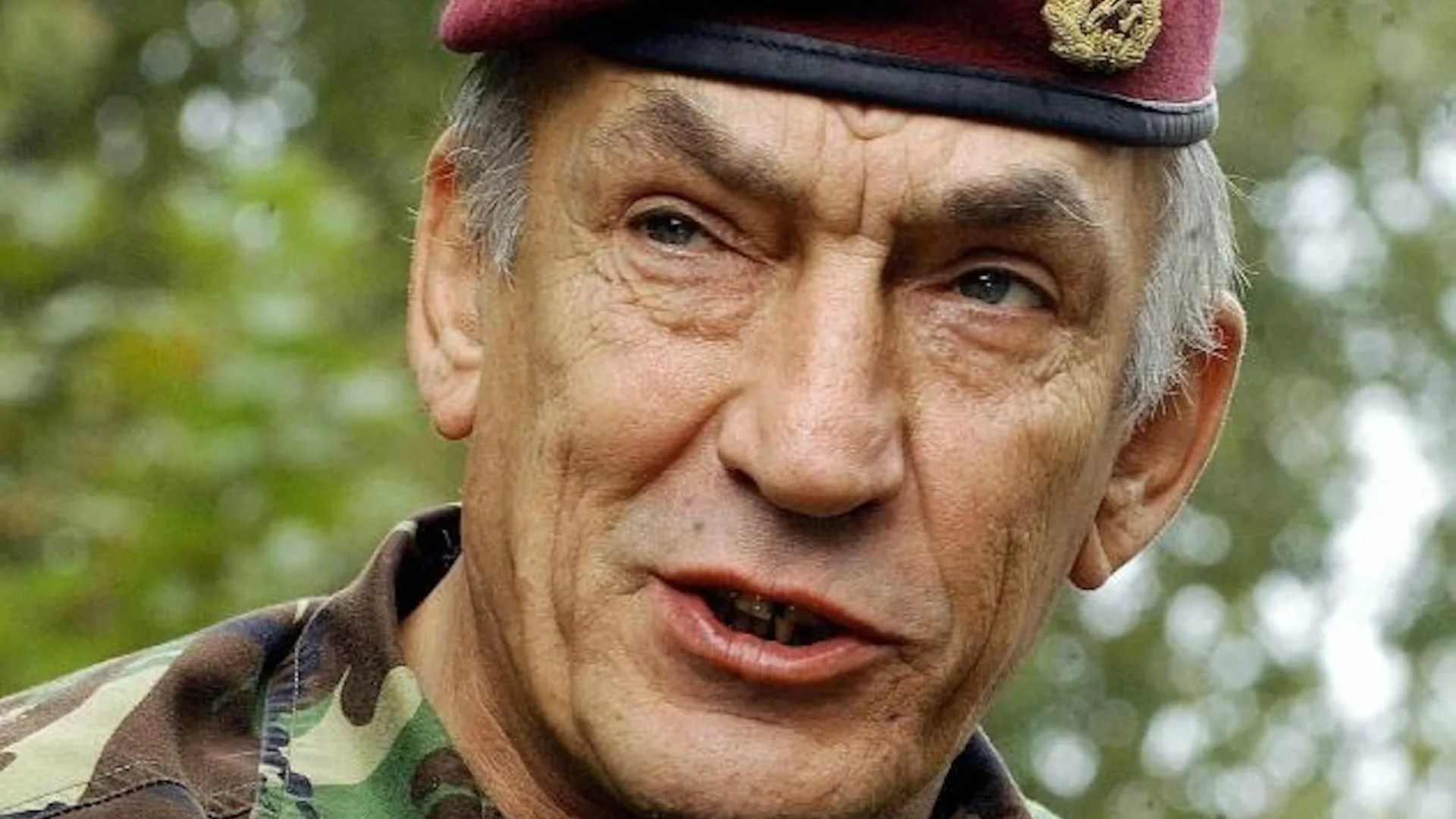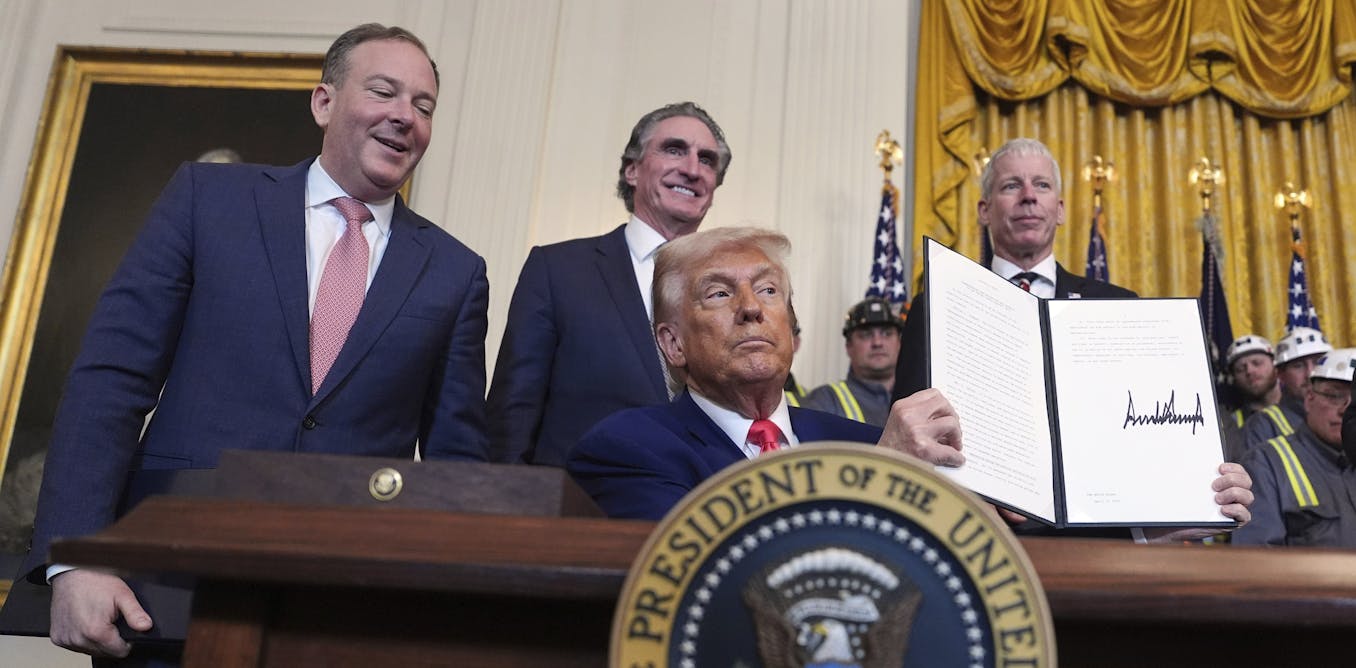HE was the gravel-voiced British Army boss nicknamed Darth Vader, who famously refused to “start World War Three” during the Kosovo conflict.
General Sir Mike Jackson, who has died at the age of 80, became our best-known military officer after leading soldiers during the invasion of Iraq in 2003.
5

5

5
Tributes have flooded in for the formidable paratrooper, who served in Northern Ireland and the Balkans, and was also known as the Prince of Darkness by troops who both feared and loved him.
Security Minister Dan Jarvis, previously a member of the Parachute Regiment, said the general was “an outstanding, inspirational and charismatic leader and true airborne legend”.
Jackson’s successor in the British Army, Lord Dannatt, said he was “devastated” to hear of Jackson’s death, adding: “They don’t make them like Mike any more.”
Lieutenant Colonel Edward Green, Britain’s defence attaché to Kosovo, said: “A legendary figure, he will be long remembered here in Kosovo.”
The no-nonsense, cheroot-puffing Jackson once refused the orders of his American boss in Kosovo in what likely averted an all-out war between the West and Russia.
In June 1999, Jackson led British forces as part of a Nato intervention during the civil war in Kosovo.
UK soldiers were ordered to seize Pristina airport but the Russians got there before them.
When US General Wesley Clark ordered an attack on the invaders, Jackson refused, aware it could ignite a global war.
Among the first British troops at the airport was young cavalry officer James Blunt, who went on to fame with his song You’re Beautiful.
James later said: “I was given the direct command to overpower the 200 or so Russians who were there.
“The direct command (that) came in from Gen Wesley Clark was to overpower them.
“Fortunately, up on the radio came Gen Mike Jackson, whose exact words at the time were, ‘I’m not going to have my soldiers be responsible for starting World War Three’, and told us why don’t we sugar off down the road, you know, encircle the airfield instead.”
Tensions ceased when the Russians ran out of supplies and the British shared food with them.
Legend has it that whisky-loving Jackson, whose craggy looks, under-eye bags and tall stature made him a formidable figure, was respected by many Russian soldiers after drinking them under the table.
Parachute Regiment ex-company commander Major Andrew Fox paid tribute and spoke about Jackson’s sharp sense of humour.
He said: “A glare and a voice like gravel, who at ten yards could skewer a mid-level officer who had been asked to read out a contentious letter from the Regimental Sgt Major at a regimental charity meeting.
“And, yes, that is oddly specific.
“But also a tremendous capacity for drinking every other man in the mess under the table, and a wicked sense of humour.”
Jackson once gave a speech to members of the Parachute Regiment when crowing noises began — military slang for an inexperienced junior soldier, known as crows.
Senior officers scoured the venue and found the culprits, two World War Two veterans.

5
Jackson smiled, shrugged and said: “It just goes to show you’re still a crow to someone.”
Born into a military family in 1944, Jackson joined the Army aged 19, before graduating from Birmingham University in 1967.
During the Cold War he learned Russian while in the Intelligence Corps.
Then in 1970, he transferred to the Parachute Regiment, serving in Northern Ireland during the height of the Troubles.
While many will mourn Jackson, in Ireland, Chairman of the Bloody Sunday Trust, Tony Doherty, said “there will be no grieving the loss of this man”.
Jackson was the adjutant of the Parachute Regiment’s 1st battalion in Londonderry on January 30, 1972, when soldiers shot dead 13 unarmed demonstrators on Bloody Sunday.
He gave evidence to the Saville Inquiry into the shootings and later gave a “fulsome” apology to the families of those who died.
Six months before Bloody Sunday, he was serving as the regiment’s community relations and press liaison in Belfast when paratroopers shot dead several civilians in Ballymurphy, Belfast.
The Army maintained that soldiers fired only after perceiving they were under threat.
He attended an inquest and denied there was any cover-up but in 2021, a fresh hearing concluded the victims were “entirely innocent”.
After his retirement from the Army in 2006, Jackson had his under-eye bags removed.
He insisted the surgery was to improve his vision and that it had nothing to do with vanity, despite increasing appearances as a TV military expert and after-dinner speaker.
Tory MP Danny Kruger described General Jackson, who is survived by three children from two marriages, and four grandchildren, as “one of Wiltshire’s most distinguished residents”.
Meanwhile, the Parachute Regimental Association said he had been a “great leader of men” who “would be missed by many”.

5




